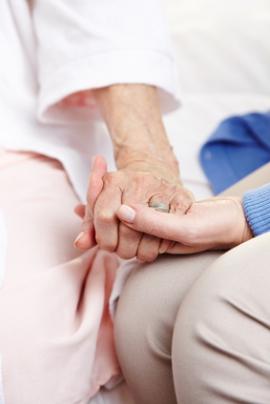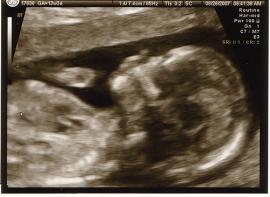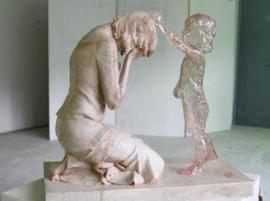All news
 EIB NEWS : UN criticises Belgium for ‘high rate’ of abortions linked to prenatal Down’s Syndrome tests
EIB NEWS : UN criticises Belgium for ‘high rate’ of abortions linked to prenatal Down’s Syndrome tests
Author / Source : EIB Published on : News Temps de lecture : 2 min.

The fact that the negative perception of people with disabilities leads to a high rate of abortions due to Down's syndrome is in practice linked to the widespread use of the NIP-test as a screening method in Belgium. This non-invasive blood test is routinely offered to pregnant women, and is fully reimbursed by the Belgian state. Although healthcare providers are supposed to leave the choice to couples faced with the news of a disability, more than 95% of pregnancies are nevertheless...
 Cryopreservation of embryos: Study highlights ethical issues involved in their preservation and inevitable destruction
Cryopreservation of embryos: Study highlights ethical issues involved in their preservation and inevitable destruction
Author / Source : EIB Published on : News Temps de lecture : 2 min.

According to a study published last June, the number of human embryos cryopreserved following artificial reproduction has reached a record level in the UK. Published in The New Bioethics, the study analysed data provided by the UK Human Fertilisation and Embryology Authority (HFEA) between 1991 and 2019. The figures show that at least 130,000 stored embryos have been destroyed in the UK since 1991. This situation, already problematic in itself, is particularly so in the UK, where legislation...
Australia: Study highlights impact of euthanasia on palliative care
Author / Source : EIB Published on : News Temps de lecture : 2 min.

Palliative care aims to relieve pain, alleviate mental, psychological, existential or spiritual suffering, safeguard the dignity of the sick person until their natural death and support those around them. The study began by analysing the impact of requests for euthanasia on overall patient care, noting that requests for information about euthanasia could sometimes divert patients and carers from the usual discussions about how to improve quality of life. However, when the patient's...
 Assisted reproduction: a study reveals a psychological impact on children born from gamete donation
Assisted reproduction: a study reveals a psychological impact on children born from gamete donation
Author / Source : IEB Published on : News Temps de lecture : 1 min.

Assisted reproduction
The study that led to this conclusion was based on a systematic analysis of 50 studies including 4,666 participants conceived using gamete donation and living in English-speaking countries. For the first time, this study looked at the long-term psychological impact of this method of conception by comparing the results with children conceived without the use of gamete donation. In particular, it identified attention deficit hyperactivity disorder (ADHD), problems of dependency, mental illness...
 Belgium under the UN’s microscope regarding the rights of people with disabilities: between inclusion and the extinction of Down's syndrome
Belgium under the UN’s microscope regarding the rights of people with disabilities: between inclusion and the extinction of Down's syndrome
Author / Source : IEB Published on : News Temps de lecture : 2 min.

In terms of bioethics, it remains to be seen whether the CRPD will examine the social and ethical implications of widespread prenatal screening for Down's syndrome in Belgium, using the NIP-test. This non-invasive blood test is routinely offered to pregnant women, and is fully reimbursed by the Belgian state. There is no official campaign to encourage women and couples to keep the child or, conversely, to have an abortion if a trisomy is detected (particularly for Down’s syndrome,...
 Pre-conception screening: Is it necessary to know everything before conceiving a child ?
Pre-conception screening: Is it necessary to know everything before conceiving a child ?
Author / Source : IEB Published on : News Temps de lecture : 2 min.

Carrier screening is a test carried out before conception for couples who are at risk of passing on a genetic disease to their offspring. Ghent University Hospital recently asked the government to reimburse the cost of these genetic tests for all couples who wish to undergo them. In the event of such a reimbursement, the more systematic use of preconception tests would raise serious concerns. In future, if a risk of genetic disease were detected, would couples really be free not to turn to in ...
The ECHR reiterates that no country is obliged to legalize euthanasia or assisted suicide
Author / Source : IEB Published on : News Temps de lecture : 3 min.

In its decision of 13 June 2024, the European Court of Human Rights (ECHR) ruled that the Hungarian government's ban on euthanasia and assisted suicide did not breach the European Convention on Human Rights. Mr Karsai, a Hungarian citizen suffering from a neurodegenerative disease, considered that this ban violated his rights under Articles 8 (right to respect for private and family life) and 14 (prohibition of discrimination) of the European Convention on Human Rights. By voting six to one,...
 Reform of the Belgian Penal Code: "loss of pregnancy" regarded as an attack on personal integrity
Reform of the Belgian Penal Code: "loss of pregnancy" regarded as an attack on personal integrity
Author / Source : IEB Published on : News Temps de lecture : 2 min.

In the new Penal Code, "loss of pregnancy", whether or not intentionally induced, is classed as an "act of violence" resulting in third-degree bodily harm. Unlike under the old Code, the intention to cause the loss of pregnancy is now taken into account (Art. 214). This offence is punishable by a level 4 penalty (as opposed to a level 3 penalty if the perpetrator did not intend to cause the loss of pregnancy). Article 215 provides for a level 5 penalty if the loss of pregnancy results in the...
 Miscarriage: new "circumstantial leave" for couples from the start of pregnancy
Miscarriage: new "circumstantial leave" for couples from the start of pregnancy
Author / Source : IEB Published on : News Temps de lecture : 1 min.

"According to studies, nearly 30% of women are at risk of suffering from post-traumatic stress one month after losing their unborn child. I don't want to ignore that.” This reality, highlighted by the Minister for the Civil Service, Petra de Sutter, called for better recognition of the pain experienced by women and couples faced with this ordeal. Until now, women who suffered a miscarriage before 180 days of pregnancy (6 months) were only entitled to sick leave (maternity leave is only g...
Pregnancy: The unborn child will not be affected by radiotherapy to the upper body.
Author / Source : IEB Published on : News Temps de lecture : 1 min.

43 participants aged between 15 and 46 whose mothers had been exposed to radiotherapy during pregnancy took part in the study. The participants were monitored at predefined ages in childhood and then every 5 years in adulthood. The researchers gave them tests to measure intelligence, attention and memory. They also collected questionnaires from the parents to assess the children's executive and psychosocial functions. These tests were supplemented by medical examinations. The results of the ...
